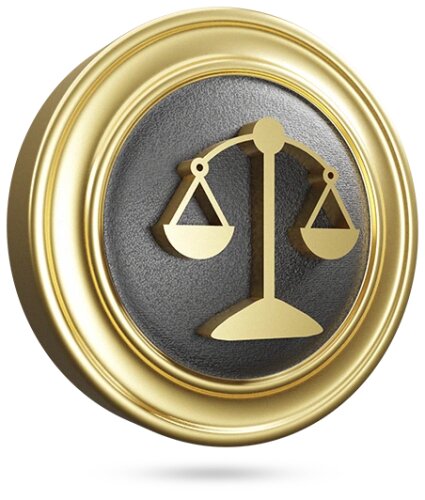Best Bankruptcy Lawyers in Brazil
Share your needs with us, get contacted by law firms.
Free. Takes 2 min.
Or refine your search by selecting a city:
List of the best lawyers in Brazil
About Bankruptcy Law in Brazil
Bankruptcy law in Brazil is primarily governed by the Brazilian Bankruptcy and Reorganization Law (Law No. 11,101/2005). This legislation outlines the legal framework for handling insolvency, bankruptcy, and reorganization processes for businesses and individuals in financial distress. The law seeks to balance the interests of creditors and debtors, providing an opportunity for restructuring viable enterprises while ensuring legal recourse for creditors seeking debt recovery. The judicial recovery process is a pivotal mechanism within this system, allowing businesses to restructure their obligations under court supervision, thereby avoiding liquidation and continuing operations.
Why You May Need a Lawyer
Hiring a lawyer for bankruptcy proceedings in Brazil can be crucial due to the complexity of the legal framework and the serious implications of such cases. Here are some common situations where legal assistance might be necessary:
- You are a business owner facing financial distress and need to explore restructuring options.
- You are an individual unable to meet debt obligations and considering bankruptcy for relief.
- You are a creditor seeking to recover debts from a bankrupt entity.
- You need legal representation during judicial recovery proceedings.
- You are navigating the sale of assets during a bankruptcy process.
A lawyer can offer expertise, protect your interests, and ensure compliance with the law.
Local Laws Overview
In Brazil, the Bankruptcy and Reorganization Law provides a structured process for addressing insolvency issues. Here are key aspects of these local laws:
- Judicial Recovery: Allows companies in financial distress to propose a plan to pay their creditors over time, under court supervision.
- Extrajudicial Recovery: Aims at facilitating negotiation and agreement with creditors outside of court proceedings.
- Bankruptcy Liquidation: Initiates when a business is deemed insolvent, leading to liquidation and debt settlement from the sale of assets.
- Stay Period: Imposes a temporary halt on lawsuits and enforcements against the debtor during judicial recovery proceedings.
- Creditor Classifications: Obligations are categorized into labor, secured, tax, unsecured, and small business debts, each with specific rules.
Frequently Asked Questions
What is the difference between Judicial and Extrajudicial Recovery?
Judicial recovery is a court-supervised restructuring process, while extrajudicial recovery occurs outside of court, relying on creditor agreements.
Who can file for bankruptcy in Brazil?
Both individuals and businesses can file for bankruptcy. However, the processes and qualifications differ significantly between personal and business bankruptcy.
How does the bankruptcy process begin?
The process begins with a formal petition filed by the debtor or creditors in a court, followed by evaluation and potential acceptance of the bankruptcy proceedings.
Can a bankrupt entity continue operations?
Yes, if a company undergoes judicial recovery, it can continue operations while restructuring its debts.
What happens to the employees during bankruptcy?
Employee claims generally take precedence, and their wages during the bankruptcy process are protected according to labor classification.
How long does the bankruptcy process take?
The duration varies widely, often depending on the complexity of the case and the nature of debts and assets involved, from several months to years in some instances.
Are all debts dischargeable in bankruptcy?
No, certain debts like tax obligations and specific secured loans may not be fully dischargeable under Brazilian law.
Can creditors oppose the bankruptcy or recovery plan?
Yes, creditors can oppose both the initiation of bankruptcy and the proposed recovery plan during designated court hearings.
What is the role of a bankruptcy trustee?
Appointed by the court, the trustee administers the bankruptcy estate, overseeing asset liquidation or company restructuring processes.
What are the consequences of filing for bankruptcy?
The consequences can include loss of certain assets, impacts on creditworthiness, and the necessity to adhere to a court-structured payment plan.
Additional Resources
Here are some resources and organizations that might be helpful for those dealing with bankruptcy in Brazil:
- The Brazilian Bar Association: Provides access to legal professionals specializing in bankruptcy law.
- Court of Justice in each state: Offers information on filing procedures and local regulations.
- SEBRAE: A support service for businesses that helps with understanding judicial recovery.
- The National Financial System Resource: Offers financial advice and support for distressed individuals and entities.
Next Steps
If you seek legal assistance with a bankruptcy issue, consider the following steps:
- Assess your financial situation thoroughly to understand your position and options.
- Gather all relevant financial documents and creditor information.
- Contact a lawyer specializing in bankruptcy law to discuss your case.
- Explore initial consultations to understand possible outcomes and legal processes involved.
- Follow legal advice to structure your bankruptcy or recovery plan appropriately.
- Remain informed and involved throughout the legal proceedings to ensure an optimal resolution.
Lawzana helps you find the best lawyers and law firms in Brazil through a curated and pre-screened list of qualified legal professionals. Our platform offers rankings and detailed profiles of attorneys and law firms, allowing you to compare based on practice areas, including Bankruptcy, experience, and client feedback.
Each profile includes a description of the firm's areas of practice, client reviews, team members and partners, year of establishment, spoken languages, office locations, contact information, social media presence, and any published articles or resources. Most firms on our platform speak English and are experienced in both local and international legal matters.
Get a quote from top-rated law firms in Brazil — quickly, securely, and without unnecessary hassle.
Disclaimer:
The information provided on this page is for general informational purposes only and does not constitute legal advice. While we strive to ensure the accuracy and relevance of the content, legal information may change over time, and interpretations of the law can vary. You should always consult with a qualified legal professional for advice specific to your situation.
We disclaim all liability for actions taken or not taken based on the content of this page. If you believe any information is incorrect or outdated, please contact us, and we will review and update it where appropriate.
Browse bankruptcy law firms by city in Brazil
Refine your search by selecting a city.













